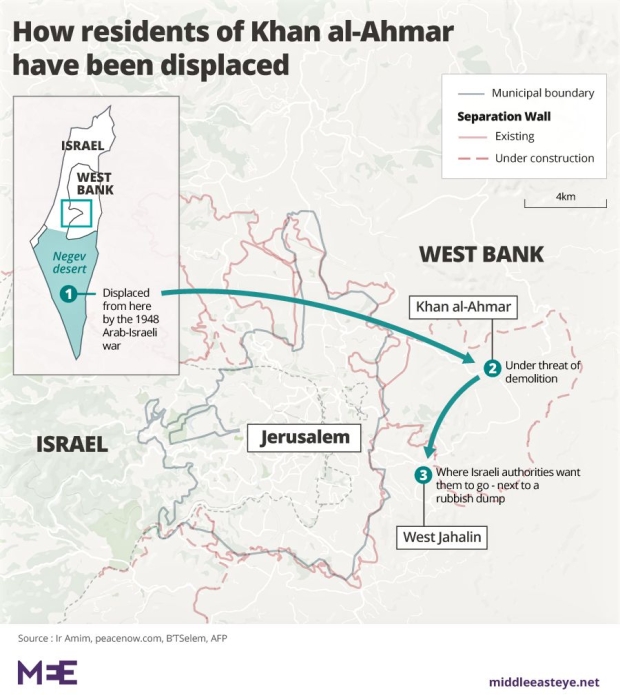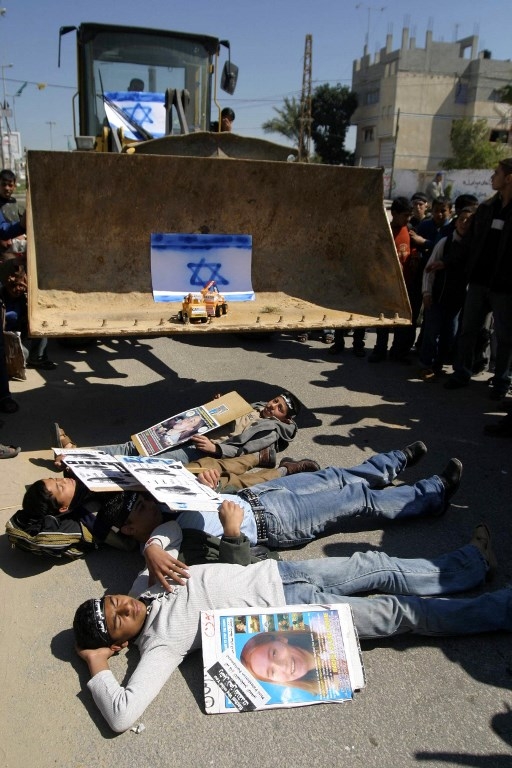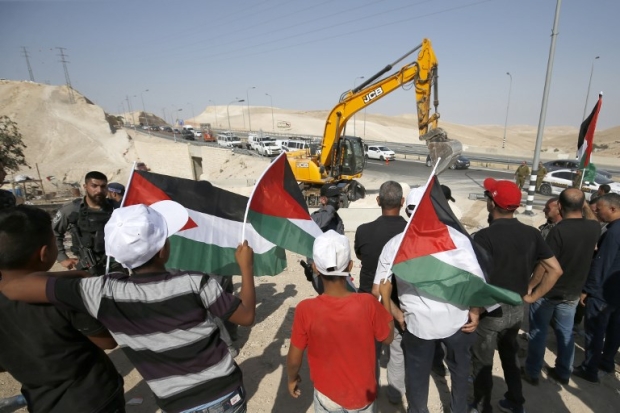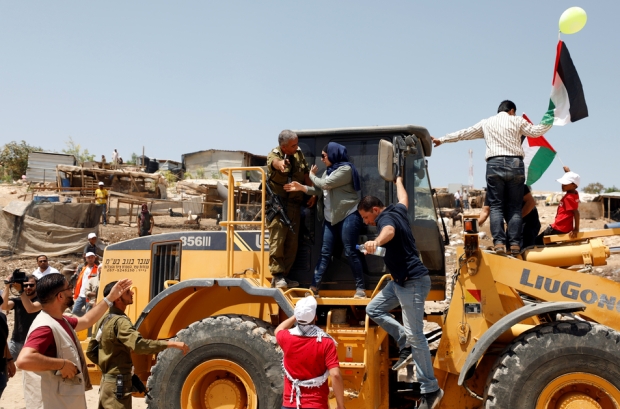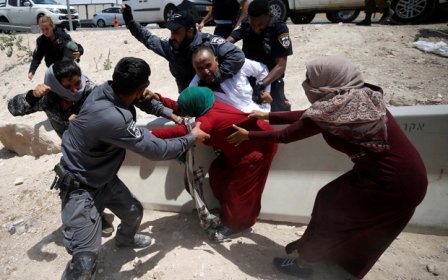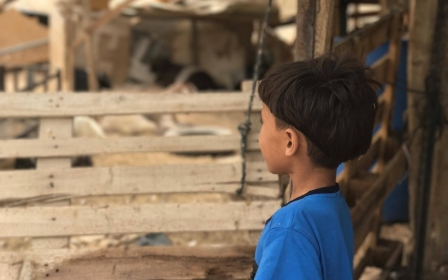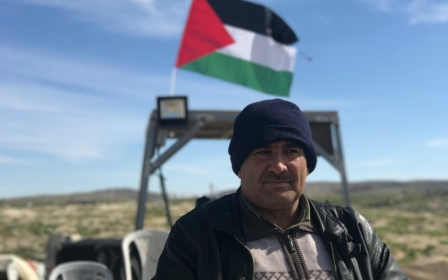Bulldozing Palestinian villages: The global firms aiding Israeli demolitions
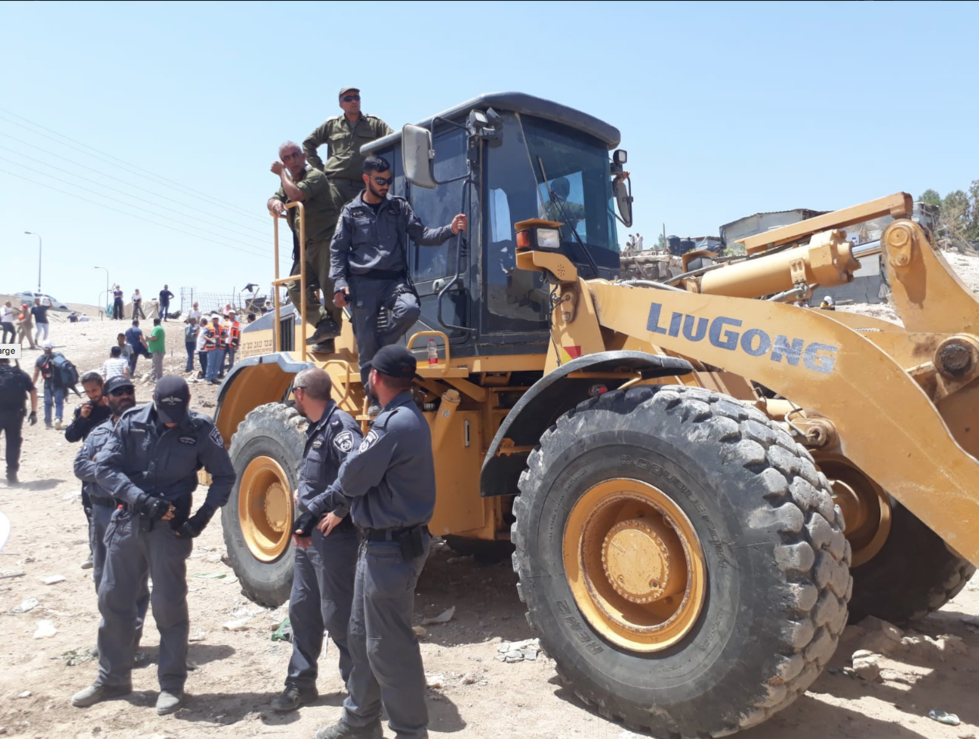
Human rights groups have condemned international construction firms for their role in the destruction of Palestinian villages including Khan al-Ahmar, which is set to be razed in the coming days.
Photographs, video and social media posts show vehicles and equipment that have been sold to the Israeli army by Caterpillar, JCB and LiuGong being used in the demolition of Palestinian homes. All three companies have declined or failed to respond to MEE's requests for comment.
Vehicles and equipment sold to the Israeli army by Caterpillar, JCB and LiuGong have been used in the demolition of Palestinian homes
In early September, the Israeli High Court of Justice rejected several last-ditch petitions filed by Khan al-Ahmar's residents and said that authorities could raze the homes from 12 September onwards.
Amnesty International described the High Court's decision as sanctioning a "war crime" while UK-based NGO War on Want condemned the companies, which it says profit from sales of the equipment to the Israeli government.
War on Want's Senior Campaigns Officer, Ryvka Barnard added that video and images incriminated Caterpillar, JCB, and Liugong for their role in Palestinian house demolitions.
"We've seen photographic and video evidence of equipment from JCB and Liugong, for example, being used by the Israeli army and waiting to go into places like Khan al-Ahmar," Barnard told MEE.
Activists have been exposing the complicity of companies like JCB and Caterpillar for many years, but the companies tend to respond in the typical manner of saying the human rights violations sadden them, but that they have no power over their equipment is used."
Khan al-Ahmar is located between the Israeli settlements of Maale Adumim and Kfar Adumim in the occupied West Bank, and has been a home for Bedouin since the 1950s. It has been at risk of demolition since 2010 after Israeli authorities accused the estimated 200 residents of illegal construction.Residents have rejected a government offer to rehouse them to West Jahalin, near the Palestinian community of Abu Dis, saying that the new site is adjacent to a landfill. Rights advocates say that a forcible transfer of the residents would violate the international laws that apply to occupied territories.
Caterpillar (CAT)
The US-based heavy equipment company has long been the target of boycott campaigns for its sale of bulldozers to the Israeli army.
CAT bulldozers have been used previously by the Israeli army to demolish homes across the occupied Palestinian territories, including the D9 bulldozer, which killed American activist Rachel Corrie in 2003.
The Corries sued the company over their daughter's death, but a US federal district judge dismissed the case in November 2005.
In 2012, CAT was removed from the index of "socially responsible" companies put together by American investment support firm MSCI Inc; it cited concerns about CAT bulldozers being used by Israel in controversial operations.
CAT said that it "does not equip tractors with armour or sell directly to the Israeli military but through the US government. And it cannot monitor the use of every piece of its equipment around the world".
The company did not respond to calls for comment when asked by MEE about the presence of its equipment in Khan al-Ahmar.
JCB
The British-based company is famed for its yellow bulldozers. Israel has used its equipment in occupied East Jerusalem, Gaza, the Jordan Valley and across the West Bank.
Pictures taken earlier in July showed JCB drilling equipment outside Khan al-Ahmar.
In 2012 JCB's equipment was used to demolish homes in Silwan, a Palestinian neighbourhood in East Jerusalem. It dominates the Israeli market with a 65 percent market share of all excavators and a 90 percent market share of commonly used loading vehicles.
The company only started to produce specially built military-grade construction vehicles in 1984: through offshoot JCB Defence Products it has supplied 3,500 vehicles to the military forces of 57 countries.
JCB declined to comment after requests from Middle East Eye.
LiuGong
Chinese company LiuGong, a new player in the Israeli market, was founded in 1958 and is headquartered in Liuzhou.
Footage showed LiuGong bulldozers being used to dismantle Bedouin homes in early July, while other Palestinian activists sat on top of the diggers in a bid to stop them destroying Khan al-Ahmar.
The use of LiuGong bulldozers by the Israeli army represents the growing Chinese presence in the country and across the Middle East, as European and American based construction companies face growing pressure to stop trading with Israel.
LiuGong did not respond to requests for comments at the time of writing.
Additional reporting by Rabia Iclal.
New MEE newsletter: Jerusalem Dispatch
Sign up to get the latest insights and analysis on Israel-Palestine, alongside Turkey Unpacked and other MEE newsletters
Middle East Eye delivers independent and unrivalled coverage and analysis of the Middle East, North Africa and beyond. To learn more about republishing this content and the associated fees, please fill out this form. More about MEE can be found here.


